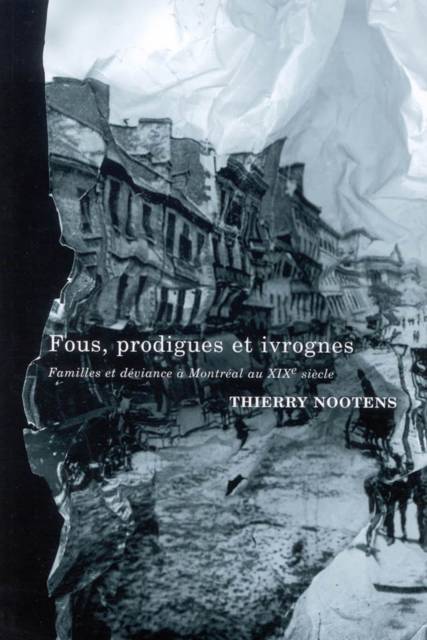
- Afhalen na 1 uur in een winkel met voorraad
- Gratis thuislevering in België vanaf € 30
- Ruim aanbod met 7 miljoen producten
- Afhalen na 1 uur in een winkel met voorraad
- Gratis thuislevering in België vanaf € 30
- Ruim aanbod met 7 miljoen producten
Zoeken
Fous, Prodigues Et Ivrognes
Familles Et Déviance À Montréal Au XIXe Siècle Volume 20
Thierry Nootens
€ 206,95
+ 413 punten
Uitvoering
Omschrijving
An alcoholic, insane, or financially reckless relative could spell disaster for families struggling to adapt to industrial capitalism in nineteenth-century Montreal. Faced with the possible decline of their social status and fearing for their respectability, many households filed for judicial interdictions depriving deviant members of civil capacity and sometimes confining them to institutions. Based on an analysis of over five hundred interdiction proceedings initiated between 1820 and 1895, Fous, Prodigues, Ivrognes examines the interactions between the families, the legal system, and doctors involved in the regulation of deviance in nineteenth-century Montreal. Moving away from the traditional focus on institutions, Thierry Nootens looks at the family - rather than the state, the medical profession, or the asylum - as the primary site for defining and regulating a range of deviant behaviours."
Specificaties
Betrokkenen
- Auteur(s):
- Uitgeverij:
Inhoud
- Aantal bladzijden:
- 320
- Taal:
- Frans
- Reeks:
Eigenschappen
- Productcode (EAN):
- 9780773531178
- Verschijningsdatum:
- 19/03/2007
- Uitvoering:
- Hardcover
- Formaat:
- Genaaid
- Afmetingen:
- 152 mm x 229 mm
- Gewicht:
- 512 g

Alleen bij Standaard Boekhandel
+ 413 punten op je klantenkaart van Standaard Boekhandel
Beoordelingen
We publiceren alleen reviews die voldoen aan de voorwaarden voor reviews. Bekijk onze voorwaarden voor reviews.











